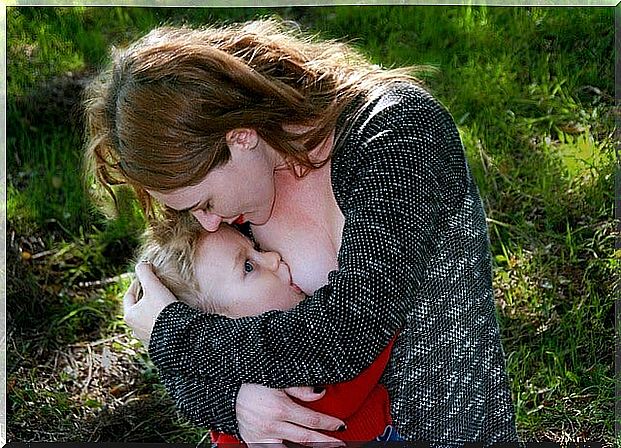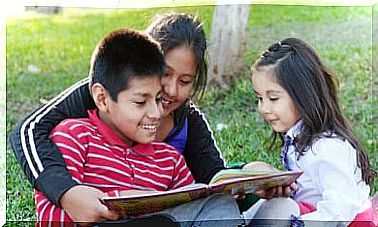What Is Prolonged Breastfeeding?

There are many myths about breastfeeding and its duration. Sometimes these myths make mothers feel ashamed of a process that, on top of everything else, is beautiful.
But, after all, what is prolonged breastfeeding?
According to the World Health Organization, prolonged breastfeeding is to continue breastfeeding the baby over two years of age or beyond the time established as “normal” in the society or culture in which the mother and child are inserted.
The organization recommends that breast milk is exclusive food for the baby in the first six months of life. Then, you should combine breast milk with complementary foods (food, fruit, broth) until at least two years of age.
There is no age limit to stop breastfeeding your baby. Weaning occurs naturally when you and your child feel that it is time to take the next step.
However, in modern societies, especially in recent decades, due to a series of factors such as lack of time, a competitive and stressful environment, the need to work or professional development and peer pressure, the mother tends to wean the child early.
Thus, it deprives the child of a food that contributes to their physical and cognitive development, and consequently, makes them more vulnerable to diseases.
Sometimes, weaning takes place in an unwanted way . Neither the mother nor the child wants to be weaned, but they end up doing it because of criticism even from professionals such as psychologists, pediatricians or teachers.
With little knowledge of the benefits of prolonged breastfeeding, they advise the mother to breastfeed the baby at a few months of age. They believe false myths about the performance or quality of milk, the unhealthy attachment of the baby to the mother, and so on.

The benefits of prolonged breastfeeding
If you are breastfeeding or are going to breastfeed soon, you should know that prolonged breastfeeding has only benefits. There are no associated physical or psychological risks.
WHO has undertaken to promote breastfeeding as the most appropriate and effective process to reduce child mortality, reduce infections and guarantee nutrition for children in their first years of life.
The global campaign in favor of breastfeeding aims to reduce child mortality by 20% and increase the number of women who give breast milk as exclusive food for their babies in the first 6 months of life.
The benefits of prolonged breastfeeding are:
- Great physical development of children compared to others fed with formula milk
- Closer and more loving bonds with the mother that will continue into adulthood. It has been determined that people who have been breastfed also tend to repeat this attitude with their children.
- Prolonged breastfeeding allows for better emotional and affective development. The child maintains a better relationship with his parents, a greater understanding in adult life with his companions, a greater perception of care.
- Reduction of childhood morbidity associated with diarrhea and gastrointestinal infections.
- Breast milk is a super food that contains all the necessary nutrients . Studies have suggested that, contrary to popular belief, breast milk does not lose its qualities over time. On the contrary, it maintains or increases its nutritional properties and provides older children with 1/3 of the nutrients they need.
- It is a natural food. No additives or chemicals. Your child is consuming safe food.

- Children who consume breast milk for longer tend to have better cognitive development. This can also be noticed over time in terms of education and entry into adulthood.
- In the long term it reduces the risk of diabetes, obesity and cancer. Both in the child and in the mother.
- The child has better mental health in adulthood
- Positive changes were observed in the emotional nature of adopted children who were breastfed
- Breastfeeding is not just a food. It is also a shield, a rest, a place of love for your child. It is important to understand this way before making any decision about stopping breastfeeding.
The study by the Spanish Association of Pediatrics called “Prolonged breastfeeding or in older children” (free translation) recommends weaning gradually to avoid trauma. The mother must also consider her emotions. If you feel that it is time to wean, you should begin the process of replacing food without guilt.









